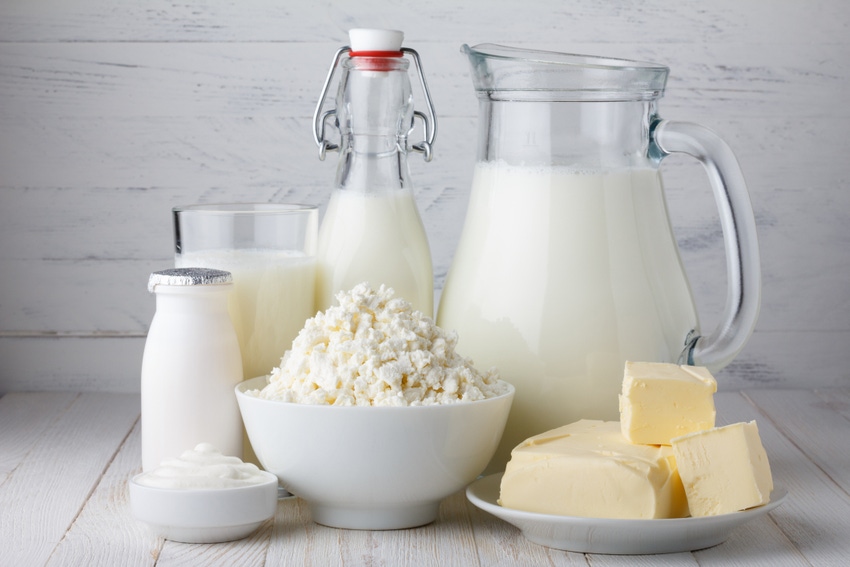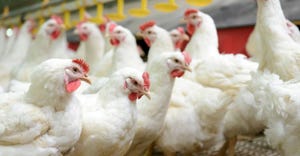If Section 232 and 301 tariffs remain in place, dairy exports will continue to struggle around the world.

Despite the renegotiated North America free trade pact offering a slight increase in market access for U.S. dairy products and eliminating Canada’s Class 7 milk classification, dairy processors remain muted in their celebration due to the continuation of the U.S. Department of Commerce's tariffs on steel and aluminum (Section 232) and intellectual property (Section 301), which have brought about retaliatory responses from Mexico and China.
Stan Ryan, president and chief executive officer of Pacific Northwest-based Darigold, said 40% of milk the company brings in from its dairy farmers goes into exports. Ryan said they’re grateful for what the U.S.-Mexico-Canada Agreement (USMCA) has brought, but a lot more has to be done in this deal.
Related: Goodbye NAFTA, hello USMCA
“The final documents are in, but we haven’t seen how caps will be disciplined, enforcement mechanisms or what will prevent technical workarounds,” Ryan said. He added that the “devil is in the details” regarding how USMCA is implemented and the tariff rate quotas (TRQs) with Canada.
Related: Goodbye NAFTA, hello USMCA
Dairy processors will be watching closely to see how final details establish enforcement of the agreement as well as the TRQs for market access. USMCA deal includes more than 3.59% additional access to U.S. dairy products. Processors are seeking a mechanism that actually ensures that additional imports are allowed to occur as well as ones that are rules and science based to allow for fair trade.
Related: Canada strikes NAFTA deal with U.S.
Dairy organizations urged the governments of the three nations to remove their tariffs on agricultural exports – as well as steel and aluminum – that have been sticking points in relations among the U.S., Mexico and Canada.
“In my opinion, we’re not ready to take a victory lap right now,” said David Ahlem, CEO of California-based Hilmar Cheese Co. “As long as [Section] 232 tariffs remain and retaliatory tariffs are set at 25% going into Mexico, we’re still out of that market.”
Related: Canada strikes NAFTA deal with U.S.
By imposing the steel and aluminum Section 232 tariffs against Canada and Mexico, even if USMCA was ratified tomorrow, it would not bring dairy producers back to where they were pre-negotiation. What was previously a duty-free market now has a 25% tariff tacked onto many key dairy products going into Mexico.
Ahlem’s company utilizes one-third of its milk it processes to service export markets and export customers. He said they’re currently losing 20% of their exports that were destined to Mexico. With the 25% retaliatory tariff in place, Mexico is now looking to the European Union or Oceania because U.S. dairy products are not as competitive.
“As long as 232 tariffs are still in place, we can’t enjoy the benefits of having a modernized [North American Free Trade Agreement] NAFTA of having things back to where they were,” Ahlem added.
The Section 301 tariffs, which came about because of the U.S. trying to hold China accountable for intellectual property theft, has also had a ripple effect on export markets. Ahlem said he has been developing markets in China for 20 years.
In China, many dairy products were already facing a tariff going in, and then another retaliatory tariff was added on top of that. For instance, China imported more than $42 million in lactose, which previously had a 10% tariff and now has another 5% added to that. Milk powder tariffs are now in the 35% range, and as of Sept. 24, milk proteins are in the 20% range.
Dairy processors explained that as these tariffs rise, trade to China may stop and need to be redirected. Ahlem said U.S. processors are either taking the hit in their own prices to account for the higher tariffs or redirecting products to lower-value markets.
“In Mexico and China, we’re losing markets, we’re losing margins and damaging future relationships," he said. "Customers are looking at us and asking, ‘Can we depend on you?’”
Michael Dykes, CEO of the International Dairy Foods Assn., said it’s clear that the marketplace isn’t going to wait for the U.S. He said the hope is that new attention can be focused on bilateral deals and securing new markets for U.S. dairy products.
Dykes said the industry was supportive of modernizing NAFTA but needs a proactive strategy going forward. “We need new trade agreements, and we need to move on with them,” he said.
Alhem added, “For dairy, when we’re not at the table, we get knocked out of the equation long term.”
About the Author(s)
You May Also Like





